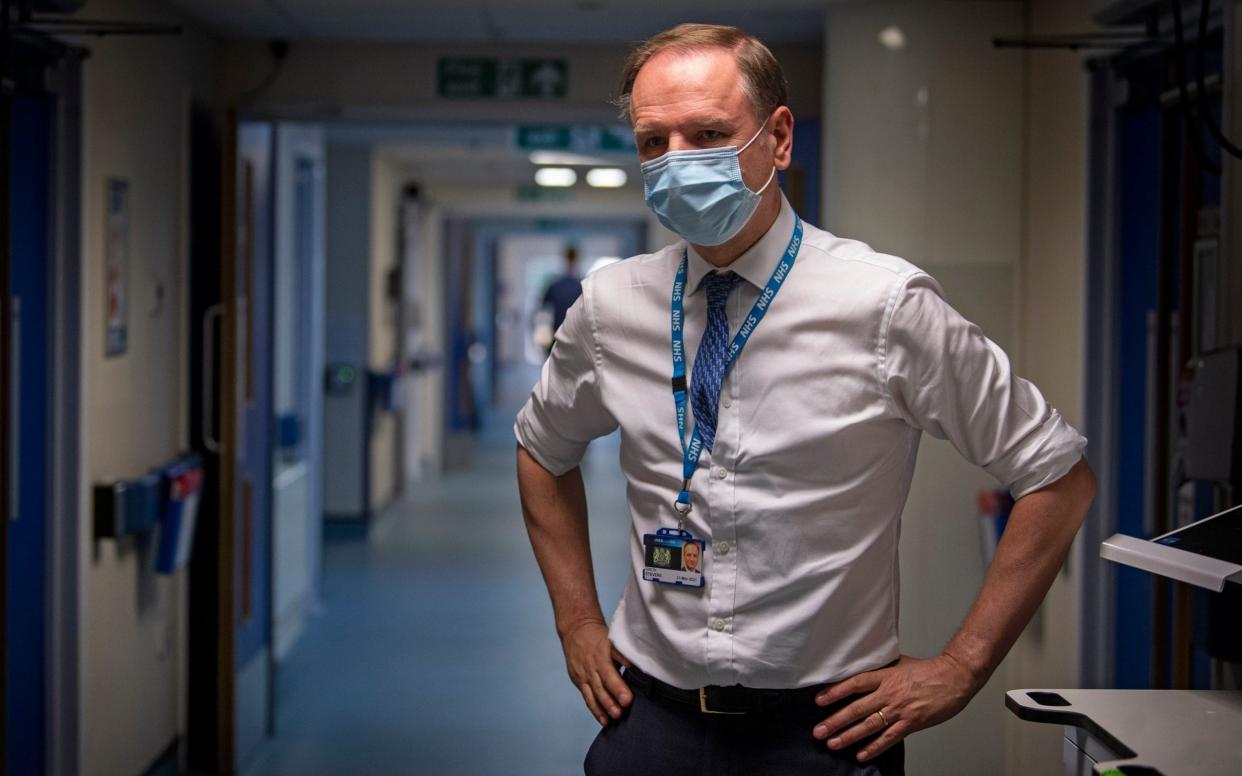Covid patient admitted to hospital 'every 30 seconds', NHS chief says


A patient is being admitted to hospital with coronavirus “every 30 seconds”, the chief executive of NHS England has said.
Sir Simon Stevens said he would not “sugar-coat” the facts and added that hospitals and staff are under “extreme pressure”.
"Since Christmas Day we've seen another 15,000 increase in the in-patients in hospitals across England, that's the equivalent of filling 30 hospitals full of coronavirus patients,” he told the Andrew Marr Show.
"Staggeringly, every 30 seconds across England another patient is being admitted to hospital with coronavirus."
Speaking outside Kingston Hospital, in south-west London, on Sunday morning he said that, for example, could mean the hospital would be full with new Covid patients between “now and lunchtime”.
He added that pressure is also spreading to other parts of the country, after London and the South East experienced the initial surge due to the new variant.
The East of England, the Midlands and the North West, particularly Merseyside, are now “right back under the cosh”, he added.
The latest figures show 32,923 beds in English hospitals were occupied by Covid-19 patients, as of January 16, up 12 per on the previous week.
When asked if patients are being transferred out of the capital to ease pressure on hospitals, Sir Simon said just nine patients were transferred on Saturday and it was an “important safety valve”.
But he added it was also a “clear indicator of the pressure on the NHS”.
He added that the health service is facing the most "unique" situation in its history.
Asked if the nation's health service has ever been in a more precarious situation, he said: "No. This is a unique event in our 72-year history, it's become glib to talk about this as the worst pandemic in a century, but that is clearly correct.
"We have got three-quarters more Covid inpatients now then we had in the April peak.
"Although we are seeing some promising signs of the steadying of the infection rates, the fact is they are still far too high and, among some age groups, still rising."
During the first wave, hospitalised patients with coronavirus peaked at 18,974 on April 12.
Lockdown could be eased gradually around the spring and summer time, Sir Simon said.
"It is not going to be the case that on Valentine's Day, with one bound, we are free.
"Equally, I don't think we will have to wait until the autumn, I think somewhere between those two.
"Subject, of course, to this uncertainty around new variants of coronavirus and it will be very important we don't see those taking off in a way that undermines the effectiveness of the vaccines we have."
But Professor Azra Ghani, an infectious disease epidemiologist at Imperial College London, said it was “very difficult to say” when the balance will be reached between bringing case numbers under control and vaccinating the most vulnerable.
“The first thing we need to focus on right now is getting those case numbers down,” she told Sky News' Sophy Ridge On Sunday programme.
"Really, we want to get back to the situation we were in the summer with relatively low case numbers compared to now, so that we can actually test and trace and reduce onward infections.
"At the same time we're, of course, rolling out a vaccine, that's something we haven't had up until now and that vaccine rollout is going very well.
"That will hopefully protect those that are most vulnerable to the severe consequences of this disease.
"We'll need to get a balance of these two things in place before we can start to lift restrictions and it's very difficult to say exactly when that will be."

